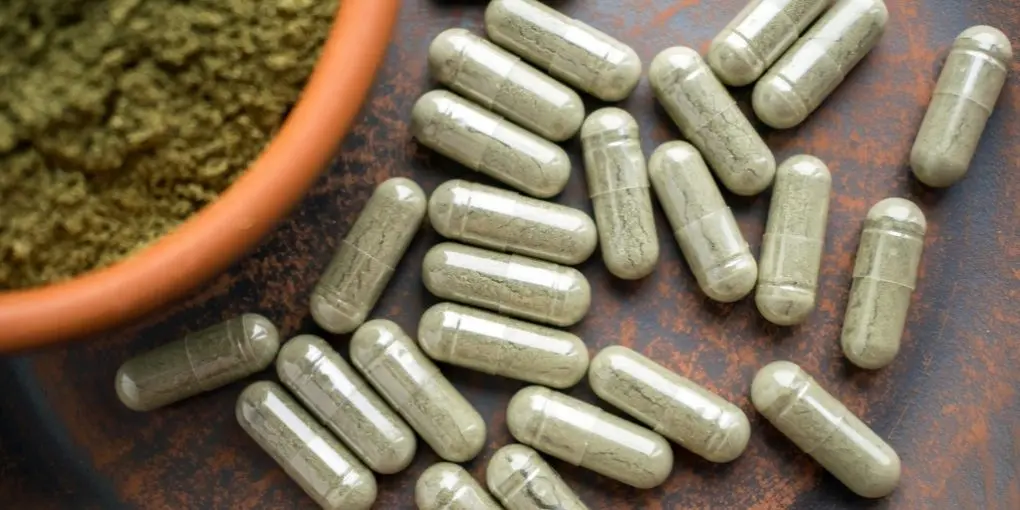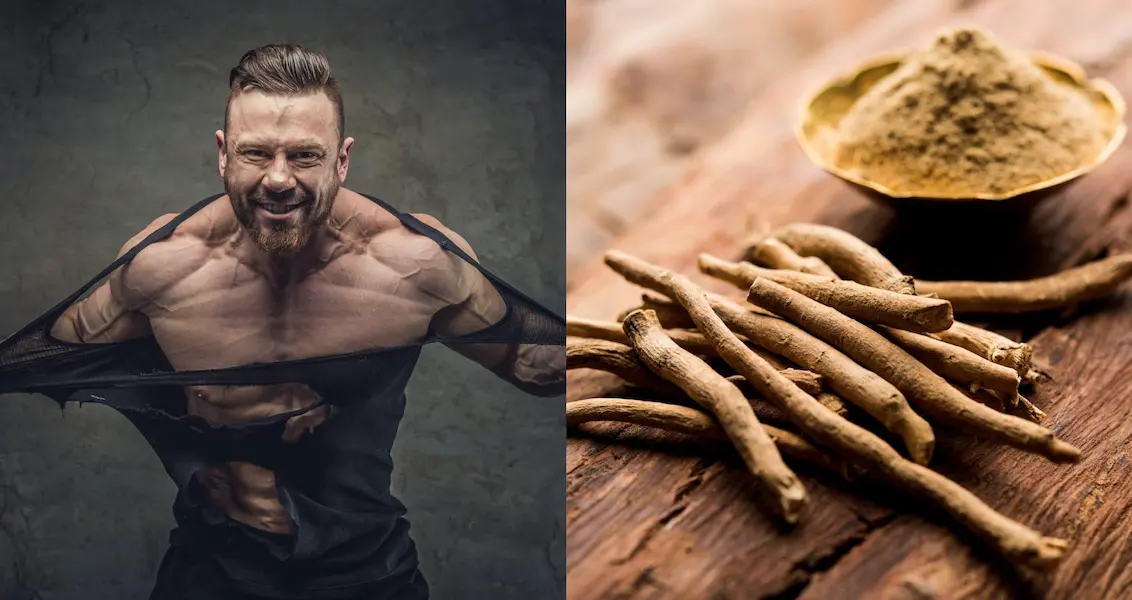Ashwagandha, a traditional herb used in Ayurvedic medicine, has recently gained attention in the bodybuilding community for its potential to enhance physical performance and muscle growth. Recognized by its scientific name, Withania somnifera, this adaptogenic herb is thought to help the body manage stress and promote overall well-being. As individuals seek natural ways to improve their fitness regimes and support their body’s response to exercise-induced stress, ashwagandha’s role has become an area of interest.
In the context of bodybuilding, ashwagandha is being studied for its possible benefits regarding strength, recovery, and muscle development. Its active compounds, like withanolides, are believed to contribute to these effects by manipulating the body’s physiological responses. Bodybuilders and athletes are turning to this herb as a supplement to potentially enhance their performance and support the rigorous demands of their training protocols. However, as with any supplement, it is essential for users to understand the potential health benefits, recommended dosages, and possible side effects.
Quick Summary
- Ashwagandha may support physical performance enhancement in bodybuilding.
- It is being explored for its potential benefits on strength, recovery, and muscle growth.
- Understanding the herb’s effects, dosages, and side effects is crucial for safe supplementation.
Ashwagandha Overview

Ashwagandha, scientifically known as Withania somnifera and commonly referred to as Indian ginseng or winter cherry, has garnered attention in bodybuilding for its adaptogenic properties.
Historical Use and Ayurvedic Roots
Ashwagandha has been a staple in traditional Ayurvedic medicine for thousands of years. In Sanskrit, its name translates to “the smell of a horse,” implying that it imparts the vigor and strength of a stallion. Historically, practitioners prescribed this herb to help individuals bolster their immune system, increase energy, and improve overall health. Its roots and berries have been used for medicinal purposes, addressing a range of conditions from stress to arthritis and balancing various bodily processes.
Active Compounds and Properties
The therapeutic potential of Ashwagandha lies in its active compounds, including withanolides, alkaloids, choline, fatty acids, and amino acids. These constituents contribute to its status as an adaptogenic herb—a natural substance that helps the body adapt to stress and exert a normalizing effect upon bodily processes. The root extract of Ashwagandha is most commonly used in bodybuilding supplements for its purported ability to support muscle growth, improve endurance, and assist in recovery after intense workouts.
Ashwagandha’s Role in Bodybuilding

Ashwagandha, an adaptogenic herb, is gaining traction among bodybuilders for its potential benefits in enhancing muscle growth, boosting exercise performance, and aiding in recovery. Its active compounds may influence various aspects of physical conditioning and recovery.
Muscle Growth and Strength
Ashwagandha has been studied for its potential to increase muscle size and strength in conjunction with resistance training. A study published in the Journal of the International Society of Sports Nutrition found that subjects consuming ashwagandha had significant gains in muscle strength and size compared to those taking a placebo. This enhancement in muscle growth is attributed to the herb’s ability to potentially elevate testosterone levels, which play a crucial role in anabolic processes.
- Study outcome: Increased muscle mass and bench press strength
Exercise and Endurance
Regular consumption of ashwagandha may contribute to improved exercise performance and endurance. It might aid in better energy utilization during strength training and other forms of exercise, enabling athletes to train more intensely and for longer periods. This effect is possibly due to the herb’s adaptogenic properties that may improve the body’s resilience to physical stress.
- Potential benefits: Sustained energy levels and endurance during workouts
Recovery and Muscle Soreness
Ashwagandha could play a part in enhancing muscle recovery and reducing muscle soreness post-exercise. Its anti-inflammatory properties may help mitigate the inflammatory responses that lead to soreness after intense resistance training sessions. Consequently, it may shorten recovery times and diminish the impact of muscle soreness on subsequent training sessions.
- Observed effects: Decreased muscle damage markers and perceived muscle soreness
Health Benefits for Athletes

Ashwagandha, an adaptogenic herb, has garnered attention for its potential benefits in enhancing athletic performance through managing stress and supporting hormonal balance.
Stress and Cortisol Management
Athletes often experience physical and psychological stress which can lead to elevated cortisol levels, impacting recovery and performance. Ashwagandha may help modulate cortisol levels, aiding in stress reduction. A study demonstrated that Ashwagandha supplementation led to significant reductions in cortisol levels, suggesting its role in enhancing an athlete’s ability to manage stress.
Testosterone and Hormonal Impact
The herb may influence hormonal balance crucial for athletes’ energy levels and overall performance. Testosterone levels are particularly important for muscle growth and recovery. Research indicates that Ashwagandha may boost testosterone production in men, potentially improving their strength and muscle mass gains. Additionally, balancing testosterone can positively affect immune system function and mental health, contributing to better cognitive function and lowering inflammation.
- Blood sugar levels: While not directly tied to testosterone, stable blood sugar levels support consistent energy, which is critical for athletes. Ashwagandha has been shown to help maintain healthy blood sugar levels within normal ranges.
References
- Stress Management: https://www.ncbi.nlm.nih.gov/pmc/articles/PMC3573577/
- Testosterone Impact: https://pubmed.ncbi.nlm.nih.gov/23439798/
Potential Side Effects and Precautions

While Ashwagandha is often used as a supplement in bodybuilding for its potential benefits, it is not without potential side effects and necessary precautions. Users should be aware of these and use the supplement responsibly to minimize risks.
Common Adverse Reactions
Individuals consuming Ashwagandha may occasionally experience adverse effects, although these are typically mild when the supplement is taken within recommended dosages. Common side effects can include:
- Nausea: This discomforting sensation can occur, particularly when Ashwagandha is taken on an empty stomach.
- Diarrhea: Some users report changes in bowel movements, which can lead to diarrhea.
- Vomiting: In cases where individuals have a sensitive stomach or exceed the recommended dosage, vomiting may occur.
It is crucial to note that while these reactions are possible, they are not guaranteed to occur and may be influenced by individual sensitivities and dosages.
Guidelines for Safe Use
Adhering to safe usage guidelines is important for minimizing the risk of side effects associated with Ashwagandha. Consider the following precautions:
- Dosage: Stick to recommended dosages and start with a smaller amount to assess tolerance.
- Blood Pressure Monitoring: Individuals with blood pressure concerns should monitor their levels as Ashwagandha can influence blood pressure.
- Pregnancy: Ashwagandha is not recommended for pregnant women due to a lack of research regarding its safety during pregnancy.
By following these guidelines and being aware of common side effects, individuals can better navigate the use of Ashwagandha as part of their bodybuilding regimen.
Ashwagandha and Testosterone Impact

The impact of Ashwagandha on testosterone levels has become an area of keen interest within bodybuilding circles due to the potential ergogenic benefits that heightened testosterone can provide. Research has increasingly pointed to Ashwagandha’s ability to elevate testosterone, particularly in men experiencing stress-related fertility issues or possessing lower testosterone baselines.
Clinical Trials and Findings
Clinical studies have provided evidence supporting Ashwagandha’s testosterone-boosting effects. In trials with men suffering from stress or mild fatigue, Ashwagandha supplementation has been associated with a noticeable rise in serum testosterone levels. This uptick is not only statistically significant but may also translate into real-world benefits for muscle mass and strength gains.
Mechanisms of Ashwagandha’s Action
Ashwagandha is thought to enhance testosterone levels through its adaptogenic action that reduces cortisol, a stress hormone that can negatively impact testosterone synthesis. By mitigating the body’s stress response, Ashwagandha may contribute to a hormonal milieu that favors testosterone production, making it particularly useful for bodybuilders who engage in intense training that can lead to elevated stress and cortisol levels.
Comparing Supplementation

When considering supplements for bodybuilding, it is important to understand how ashwagandha stands in comparison to other staples like creatine and whey protein, and recognize the proper dosage and timing for consumption.
Ashwagandha vs. Other Supplements
Creatine is a well-known supplement for increasing muscle mass and improving performance in high-intensity activities. It differs from Ashwagandha in that it directly supplies energy to muscle cells during workouts, while Ashwagandha is an adaptogen, primarily leveraged for reducing stress and potentially increasing testosterone levels.
Using whey protein, bodybuilders provide their muscles with the necessary building blocks to recover and increase in size post-workout. Ashwagandha, in contrast, does not offer protein supplementation but may improve muscle recovery through its stress-lowering effects.
- Creatine
- Increases muscle energy
- Directly affects workout performance
- Whey Protein
- Supplies amino acids for muscle recovery
- Increases muscle mass
- Ashwagandha
- May boost testosterone levels
- Enhances stress response, which indirectly could benefit muscle recovery
Ideal Dosage and Timing
The optimal intake of ashwagandha supplements can vary, but a common dosage is between 300-500 mg of a root extract, taken with meals.
- Ashwagandha Supplements (root extract)
- Capsules: Typically 300-500 mg
- Powders: Varies by concentration, follow label instructions
- Timing: Preferably with meals, twice daily
Creatine and whey protein have more straightforward dosing guidelines based on body weight and exercise intensity.
- Creatine
- Dosage: 5 g per day, loading phase optional
- Timing: Pre- or post-workout
- Whey Protein
- Dosage: 20-40 g post-workout or as needed
- Timing: Immediately after workouts or as a supplement throughout the day
Bodybuilders should refer to the specific labels and guidelines provided with their supplements, as recommendations may differ between brands and individual needs.
Frequently Asked Questions

In this section, readers will find concise answers to common queries regarding the use of Ashwagandha in bodybuilding, covering efficacy, dosage, side effects, and comparisons with other supplements.
Can Ashwagandha enhance muscle growth and strength?
Ashwagandha has been shown to support muscle mass gains and enhance strength in conjunction with resistance training. It may improve the body’s response to stress and aid in recovery, which are key factors in muscle development.
What is the optimal dosage of Ashwagandha for bodybuilding purposes?
The recommended dosage for Ashwagandha tends to vary, but studies have found successful outcomes with daily doses ranging from 300 to 500 mg of a root extract, standardized to withanolides, which are the active compounds.
Are there any side effects associated with taking Ashwagandha for bodybuilding?
While Ashwagandha is generally well-tolerated, some individuals may experience side effects like upset stomach, nausea, and drowsiness. It is always essential to consult a healthcare provider before adding any supplement to one’s regime.
How does Ashwagandha compare with creatine for muscle development?
Ashwagandha and creatine work differently. Creatine directly supports energy production for heightened performance during high-intensity activities, while Ashwagandha may help increase muscle mass and strength through stress reduction and hormonal balance.
Does Ashwagandha have anabolic properties similar to steroids?
Ashwagandha is not a steroid and does not act as an anabolic steroid. It may support muscle growth and recovery by modulating stress responses and testosterone levels, but it does so without the harmful effects associated with steroids.
What is the best time to take Ashwagandha for maximizing bodybuilding benefits?
It is often recommended to take Ashwagandha with meals to minimize potential gastric discomfort. Some prefer to take it close to bedtime due to its potential stress-reducing effects, which may aid in better sleep and recovery.
References
- Effects of Withania somnifera (Ashwagandha) and Terminalia arjuna (Arjuna) on physical performance and cardiopulmonary endurance in healthy young adults
- Examining the effect of Withania somnifera supplementation on muscle strength and recovery: a randomized controlled trial
- Withania somnifera Improves Semen Quality By Regulating Reproductive Hormone Levels and Oxidative Stress in Seminal Plasma of Infertile Males
- Standardized Withania somnifera extract significantly reduces stress-related parameters in chronically stressed humans: a double-blind, randomized, placebo-controlled study
Dr. Grant Fourie, a specialist in male hormones, is based in Cape Town, South Africa. He provides comprehensive treatments for conditions related to low testosterone, such as erectile dysfunction, fatigue, and mood changes. His methods include hormone replacement therapy and other modern treatment options.
Contact me via email or phone to book personal appointment in my clinic: The Village Square, Cape Town - South Africa



